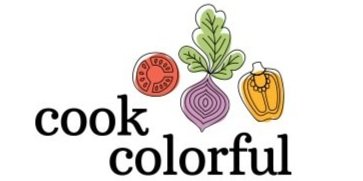Why Nutrition?
Why do we feed ourselves? Well, for one, it tastes great! It also satisfies a need, making us feel sated. More than that, however, our human body is a machine that requires fuel. Much like a car needs gasoline (or electricity), we need food and water to operate -- not just optimally, but at all. What would happen if you put 89 octane fuel into your 93 octane vehicle? It would run in the short term, probably with some knocks and pings, but it would get you from point A to point B. However, in the long term, who has actually tested that? Nobody wants to ruin their car that way. Wait a minute, isn’t that what we are doing when we put poor-quality food into our bodies? I don’t mean a birthday or holiday treat. I mean every day, grabbing a donut for breakfast as you run out the door, pizza for lunch and a burger for dinner. Sound familiar?
The Standard American Diet (or SAD diet as it has aptly been referred to), consists largely of processed foods which contain enormous amounts of salt, sugar, genetically modified products, and, worse yet, things that we wouldn’t recognize if we were sitting next to them (have you looked at a label lately?). It is recommended that we eat 8-12 servings of fruit/vegetables each day. According to the CDC, only 1 in 10 of us is eating the minimum amount recommended, let alone what would constitute optimal levels. We are filling our stomachs with all kinds of “food-like items” that are not providing us with the nutrients that our engines require for optimal functioning. According to Chris Kresser of the Kresser Institute, “Despite an abundant food supply, research indicates that Americans are significantly deficient in many critical nutrients. Several factors are responsible for the well-fed but undernourished epidemic sweeping the nation, including a high intake of processed foods, declining levels of nutrients in our soils, and the increasing prevalence of chronic health conditions that influence nutrient needs.”
We need to do better at actually fuelling our engines, not just satisfying our cravings.
Hippocrates, a philosopher and often considered the father of medicine, said, “Let food be thy medicine and medicine be thy food.” He was way ahead of his time. We are only now beginning to realize just how true his words were. More and more, we are finding that food has the power to give us health or take it away. We are beginning to understand the importance of healthy water and soil to produce nutrient-rich plants, which in turn feed nutrient rich animals. If we choose to eat animals, what they have eaten makes a huge difference in what the benefits and harms are to us and our bodies. When we respect the earth and don’t try to change nature, we are gifted with nourishing food that will keep us healthy for many years to come.
Mindfulness seems to be the new buzzword these days. It is true that mindfulness can lead to our appreciation of what we have, our realizing when we have had enough, and our feeling truly happy. Mindfulness of what we put into our mouths can also have a huge impact not only on how we treat the world, but on how we are filling our engines with the nutrient fuel that is required for our optimal performance and long lives.
Action items for chronically great health:
Read labels - if you wouldn’t use something in your kitchen, don’t buy a processed item that has it in it.
Choose whole foods - foods that don’t require a label, like fresh fruits and vegetables, whole unprocessed grains, and meats and fish that are not factory farmed.
Go organic whenever possible. The Environmental Working Group puts out a list of the dirty dozen fruits and vegetables that have been found to have the most pesticide and herbicide residue. Avoid those first.

